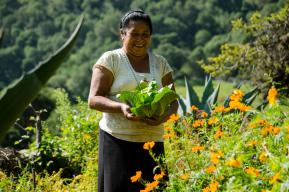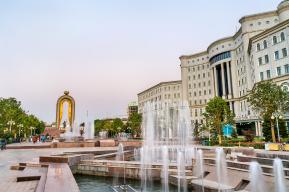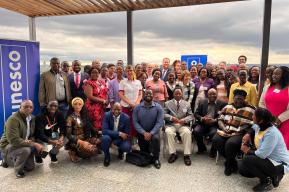News
Colombia's Minister of National Education, Aurora Vergara, Highlights Achievements of the SDG4 High-Level Steering Committee

This article is part of the Key Learnings for Education 2030 series written by the SDG4 High-Level Steering Committee (HLSC)'s Inter-Agency Secretariat. In this series, we speak with the outgoing leaders of the HLSC about the strides that were made towards achieving SDG4 and draw inspiration from them on how to further advance the work for education transformation.
On the closing of her mandate as representative of Latin America and the Caribbean, we sat down with Colombia's Minister of National Education, Aurora Vergara, to discuss her tenure on the SDG4 High-Level Steering Committee (HLSC), hosted by UNESCO, over the past two years. In this interview, the Minister gives us first-hand accounts of the Committee's achievements, recommendations for the coming years and her commitment to the pursuit of SDG4.
First and foremost, the Minister highlights the commitment of all HLSC member states to advancing the achievements of Sustainable Development Goal 4, in addition to the great leadership of UNESCO to support each of the countries that are part of the Steering Committee.
The work that has been carried out throughout the Latin America and the Caribbean region has not only contributed to making the regional mechanism stronger. It has also made the diversity present in the region more visible, which has led to fruitful discussions. "In addition, it has made it possible to defend legitimate positions in the SDG4 regional steering committee, both in discussions and in proposals at the global level. It has also demonstrated that our region has relevant proposals to strengthen the education sector," says the Minister.
Undoubtedly, some remarkable results include the creation of a more consolidated regional mechanism. This has been of vital importance as it provides a more robust high-level structure for SDG4 coordination and monitoring. This has allowed the region to present more cohesive proposals and positions in the field of education.
Regarding the closing of her mandate, the representative of Latin America and the Caribbean states that recognizing the effort to engage regions and countries in global proposals is key. But the most important thing is to do it considering their strengths, experiences, good practices and needs. This is why the Minister stresses the need for co-creation spaces that go beyond the validation of proposals. In this way, representatives from different regions could be allowed to make observations and advance in proposals based on their regional experiences.
In summary, according to the Minister, her term of office is coming to an end at a moment when reports are showing limitations in the hiring of teachers and challenges in access and educational coverage. "For this reason, it will be very important to listen to the experiences of each region, to gather lessons learned and to make proposals to inform future decisions and recommendations, all of this to move towards SDG4," she concludes.










